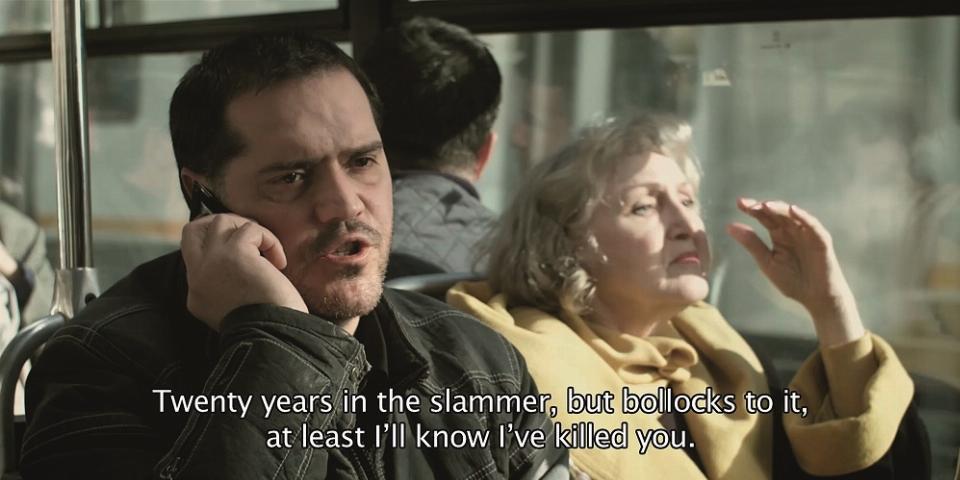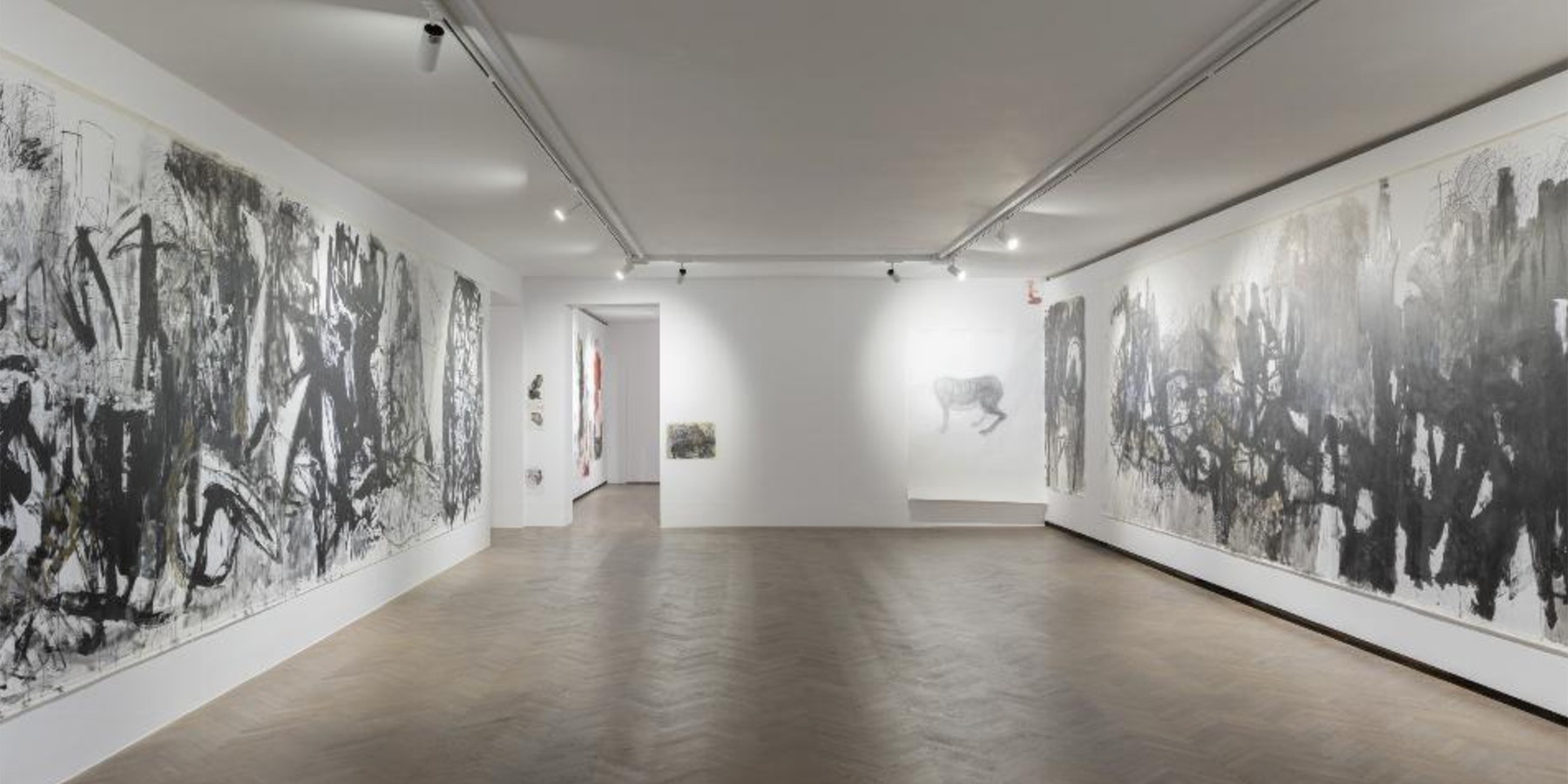Ștefan Constantinescu
Troleibuzul
Ştefan Constantinescu
Troleibuzul 92, 2009, video, 9 min 1 sec
Collection II of the Arsenal Gallery in Białystok. Work purchased by the Arsenal Gallery

In his short film Troleibuzul 92, Ştefan Constantinescu focuses on the issue of interpersonal relationships in public space. The scene, which was stage-managed but appears to have been recorded by chance, constitutes an incisive observation of people’s behaviour in situations infringing the norms of social contract. The central personage in the short film, recorded in a trolleybus at midday, is a man engaged in a phone conversation, presumably with his wife or girlfriend. In a dull, monotonous voice, he spouts a string of curses, insults and threats. Although his face is empty of emotion, he asks a series of aggressive questions betraying a pathological jealousy towards the woman, whose only fault is that she escaped from under his control while speaking to someone over the phone. The man threatens her and her family with death. His cool self-control, out of keeping with the aggression in his words, suggests this is a routine behaviour, a quotidian rhetoric of abuse.
The protagonist controls and dominates the entire space of the trolleybus. His body language is restrained but, much to his fellow passengers’ discomfort, he subjugates the environment by means of his words. The behaviour of the woman sitting next to him betrays this discomfort particularly clearly: she covers her face with her hand and turns her eyes towards the window, seemingly not noticing anything untoward, but evidently very tense. Others are very aware of the troublesome passenger’s presence, too; they can hear his voice well. Yet nobody reacts, even though everything seems to indicate that his threats are real. One female passenger looks at him only when, leaving the trolleybus, he turns his back to her.
Passengers sharing the cramped space of a trolleybus became inadvertent spectators of a one-man’s show of aggression. Constantinescu offers for consideration the issues of responsibility (what will happen when the man reaches the woman’s home?), the difference between respect for privacy and indifference, finally the choice between courageously demanding respect for generally accepted norms and quietly waiting out the uncomfortable situation. Interpreting Troleibuzul 92, art critic Kenneth Baker mentioned the mental attitude of the Romanians, who after decades of operating in the communist system had lost their perception of civic duties. Yet the scope of Constantinescu’s observations is more universal, impossible to reduce to the heritage of experiences and values of totalitarianism.
Izabela Kopania
translated from Polish by Klaudyna Michałowicz

PLAN YOUR VISIT
Opening times:
Thuesday – Sunday
10:00-18:00
Last admission
to exhibition is at:
17.30